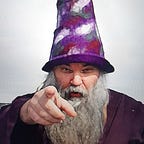Straddling Three Worlds
The world we base our decisions on is neither the world we’re designed for nor the one we’ve transformed it into.
A lot of human behaviour is instinctual, effectively hard wired into our genes, but those behaviours are a remnant of our ancestors living in a very different world. When you are a hunter gatherer, there’s a good biological reason to be highly attracted to fats and sugars, which are relatively rare in natural ecosystems. Metabolically storing up that energy becomes important when winter comes along and it becomes harder to forage. When you live in a place where virtually limitless quantities of fats and sugars are now available everywhere you turn all year long, however, obesity and type two diabetes can become predictable byproducts of that instinctual tendency. Habits that might have served our ancestors well twenty thousand years ago aren’t necessarily adapted well to the reality of our world of today. Sometimes it’s wise to trust our instincts, but at other times they definitely work against our best interests.
Even more important, we do not rationally make most of our decisions based on clear understanding of how the world we live in actually works. We primarily do so on a set of narratives and assumptions about our world, a cognitive image of our world that we carry around in our heads and which can differ greatly from the reality we inhabit. Fifty years of consistent evidence that trickle down economic policies have never even once done the things they claimed would happen doesn’t get in the way of politicians continuing to kowtow to maximizing corporate profit margins even in the depths of an unprecedented economic crisis. Trickle down isn’t an instinctual behaviour, but it’s perfect proof that the world we imagine shapes our actions more than the real world around us does.
As a combination of these factors, human decision making is often a collective train wreck where our instincts pull us in one direction and our cultural narratives and presumptions pull us in other directions, and neither of those things serve to truly help us thrive in our reality. This leaves humanity trapped in a place where the real world provides us with a lot of useful information and we have the capacity to observe and understand that information but we…
